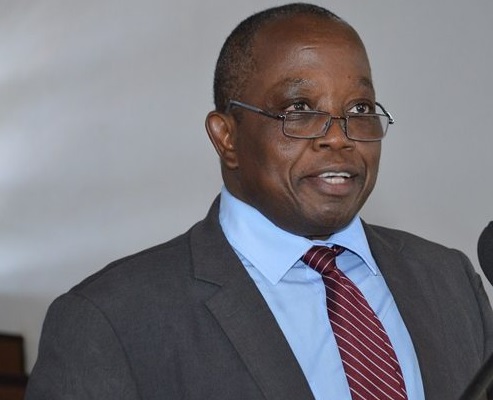
Domelevo calls for lifestyle audits in asset declarations
Former Auditor General Daniel Yaw Domelevo has called for a robust lifestyle audit system to accompany the asset declaration regime to enhance transparency and accountability in public office.
Speaking on Joy News on Tuesday, February 18, Domelevo said merely declaring assets is insufficient without mechanisms to verify the authenticity of such declarations.
His remarks followed President John Mahama’s public declaration of assets on the same day, during which the President also directed his appointees to declare their assets by March 31 or face dismissal. While Domelevo welcomed the president’s action as a positive step, he expressed reservations about the process, particularly the submission of asset declarations in sealed envelopes.
“I was not too happy seeing the envelope being given to the Auditor General because that goes more or less to support the perception that you just put your declaration in an envelope, seal it, and submit it without proper verification,” Domelevo said.
He stressed the need for a thorough verification process to ensure that declarations are complete and accurate.
Domelevo insisted on the implementation of lifestyle audits to track wealth accumulation among public officials.
He warned that without such audits, individuals could hide assets through family members and associates, making asset declarations ineffective.
“How did you get this money? If we don’t conduct lifestyle audits, people will hide their resources with their families and friends. Anyone suspected of being an ally of a public officeholder should be subjected to a lifestyle audit. If their wealth is far beyond their legitimate sources of income, they must account for it or have those resources confiscated,” he explained.
He cited examples from the United Kingdom and Ethiopia, highlighting how these countries have successfully used lifestyle audits to curb corruption and illicit wealth accumulation. Ethiopia, he noted, has implemented stringent measures over the past decade to enhance public accountability.
Public declaration and a strong legal framework
Domelevo further urged the government to enact a code of conduct for public officeholders that includes mandatory public asset declarations, lifestyle audits, and the reversal of the burden of proof on unexplained wealth.
“The president has mentioned public declaration; he should back it with a legal framework. If this is done, it will be a major milestone in promoting accountability,” he added.
Evidence of wealth disparities
Domelevo also pointed to evidence from Auditor General reports showing that some public officials amass wealth far beyond their salaries within short periods.
He recalled instances where Members of Parliament (MPs) earned less than him as Auditor General but were exponentially wealthier.
“Many of them have been in office for just four years and are suddenly very rich. If you compare their salaries to their lifestyles, the disparity is glaring. This is why we need to know how much they had before taking office and how much they have when they exit,” he argued.
Gaps in law enforcement
Domelevo also criticised the lack of penalties for non-compliance with asset declaration laws, citing instances where even top judiciary officials failed to declare their assets. He lamented that the Commission on Human Rights and Administrative Justice (CHRAJ) dismissed complaints on the grounds that Act 550 does not prescribe punishments for non-declaration.
“If the constitution mandates asset declaration before assuming office, then failing to do so means you are illegally occupying that office,” he asserted, likening it to a president attempting to assume office without being sworn in.
The former Auditor General reiterated that asset declarations must be backed by stringent enforcement mechanisms, lifestyle audits, and clear legal consequences for non-compliance.
He urged the government to prioritise these reforms to ensure that asset declaration serves as a genuine tool in the fight against corruption.
“If we declare assets properly with punishment for non-compliance and publication of declarations, but fail to include lifestyle audits, the system will still be ineffective. We need all these measures in place to make asset declaration a meaningful tool for accountability,” Domelevo said.
Related article:
President Mahama declares assets - Issues March 31 deadline for appointees
